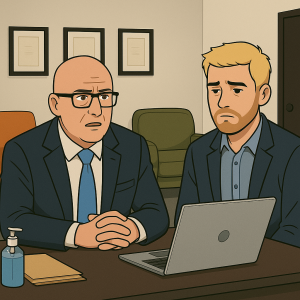1. Victim and Witness Rights
- Texas Attorney General – Crime Victim Services
Offers information on victim rights, compensation programs, legal advocacy, and access to local support services. - Texas Crime Victims’ Compensation Program
Provides financial support for victims of violent crime for medical bills, counseling, relocation, and lost wages.
2. Free and Low-Cost Legal Aid Programs
- Texas Law Help
Online legal resource offering forms, guides, and referrals for civil legal issues including harassment, stalking, and protective orders. - Texas RioGrande Legal Aid (TRLA)
Provides free legal representation to low-income Texans on domestic violence, cyber abuse, and related civil matters.
3. Relevant Laws
- Stalking: Tex. Penal Code § 42.072
What it means: Involves repeated conduct that causes another to fear for their safety. Includes digital surveillance and cyberstalking behavior. - Harassment: Tex. Penal Code § 42.07
What it means: Covers repeated or obscene communication made with intent to harass, annoy, alarm, abuse, or embarrass another person. Applies to calls, texts, emails, and social media messages. - Bullying: No adult criminal statute. Covered under Tex. Educ. Code § 37.0832 (David’s Law)
What it means: Requires public schools to adopt anti-bullying and cyberbullying policies. Allows for disciplinary action and law enforcement involvement in certain cases. - Defamation: Civil tort, not criminal. Based on Texas common law and case law.
What it means: Individuals may sue for libel or slander if false statements cause reputational or financial harm. Texas does not criminalize defamation.
4. Reporting and Hotlines
- Call 911 for emergencies or immediate threats to safety.
- Report non-emergency incidents to your local police department or county court.
- Texas Council on Family Violence (TCFV)
Coordinates statewide domestic violence services, including legal aid, shelter, and crisis response. - Statewide Domestic Violence Hotline: 1-800-799-7233
24/7 confidential assistance, safety planning, and referral support across Texas.
5. Support Organizations
- Texas Council on Family Violence
Offers advocacy, policy work, and support services through a network of local providers. - SAFE Alliance (Austin)
Provides comprehensive services including shelter, counseling, legal advocacy, and prevention programs.
6. Civil Remedies and Protection Orders
Texas courts issue Protective Orders to prevent further abuse, harassment, or stalking. Orders may prohibit contact, presence, or communication, and can be tailored to the survivor’s needs. Legal aid organizations and domestic violence advocates can assist with form preparation and court filings.
Important Note on Jurisdiction: If the individual you are seeking a restraining order against lives in a different state, your local court may not have jurisdiction to enforce that order. In most cases, you must file for protection in the state where that individual resides or where the conduct occurred. This applies even in situations involving online harassment, defamation, or stalking. Contact legal aid services in both your state and the other person’s state for guidance.
7. Youth and School Resources
- Texas Education Agency – David’s Law Implementation
Provides school guidance on reporting, prevention, and disciplinary responses to bullying and cyberbullying.
8. Court Forms and Filing Help
- Texas Law Help – Protective Orders
Access court-approved forms, filing instructions, and legal support for restraining order petitions.
9. Online Safety and Privacy Tools
- NNEDV Tech Safety Toolkit
Digital tools and safety guidance for survivors of cyberstalking, doxing, impersonation, and tech-based abuse.
Disclaimer: This information is provided for educational purposes only and does not constitute legal advice.




